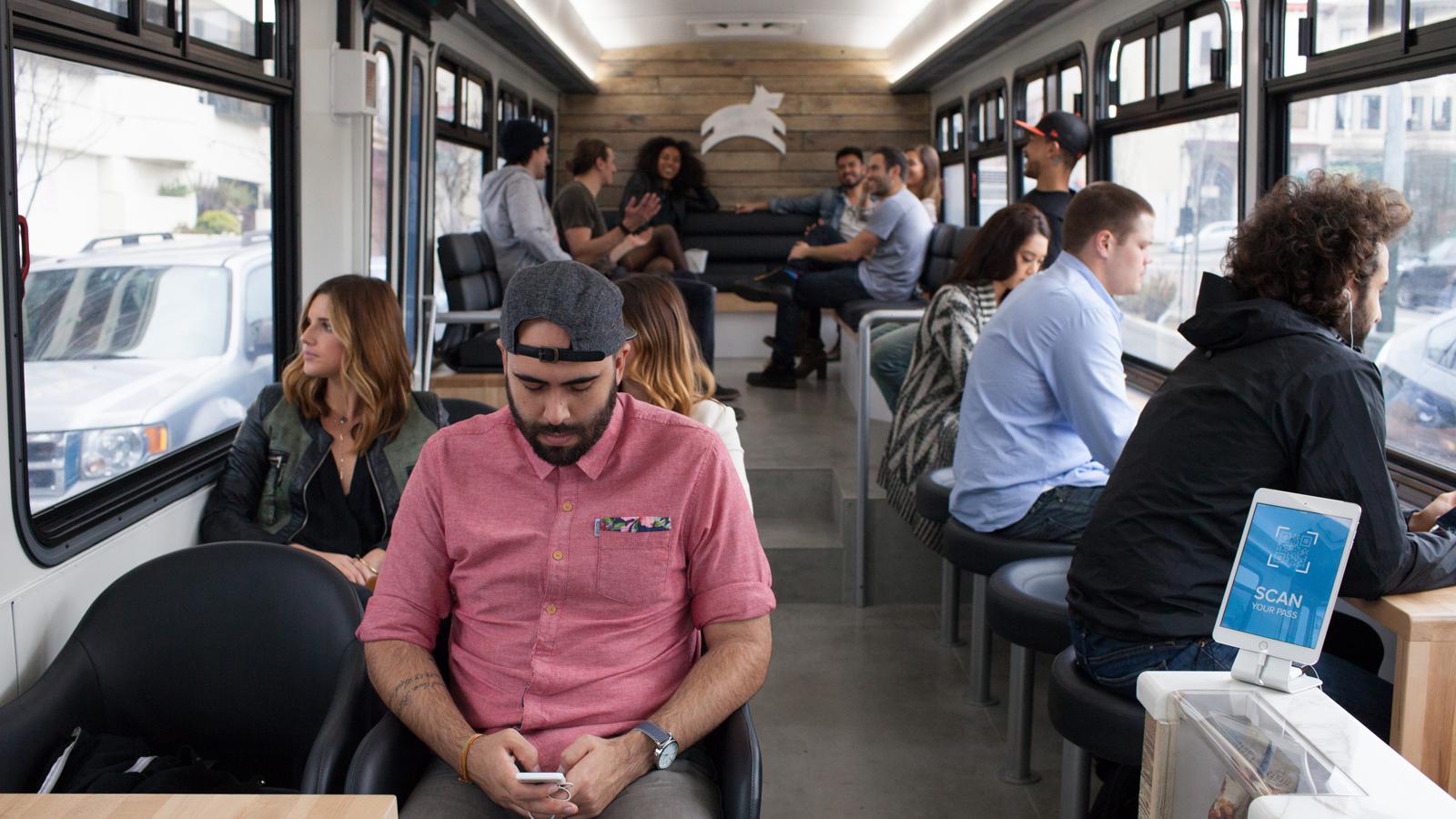Last spring, I got to fulfill a dream that I never knew I even had by riding Leap Transit — a $6 private bus line complete with distressed wood and swiveling bar stools. It felt like a perfect apotheosis of the tech boom in San Francisco, where everything imaginable in the city has now calved off a more expensive, more exclusive, often app-enabled equivalent. Want to live six bunkbeds to a room in the Mission, much like the neighborhood’s day laborers have done for decades? You can do that. Want a cheap burrito — but hand-delivered to you by an underpaid participant in the gig economy? No problem. Want to take a bus to work, but would rather take one with $2.5 million in venture capital behind it and its own social network? Boy, do we have a bus for you.
Now Leap, long rumored to be on the skids, has filed for bankruptcy. The demise of Leap surprises pretty much no one. Early on, Leap got hit with an ADA lawsuit over the wheelchair access that the company had ripped out in its enthusiasm to install an onboard coffee bar. Service was suspended in late May, when the state shut Leap down for not having its permits in order. The break in service was temporary, Leap said, but the customized buses began to turn up for sale online earlier this summer. Now it looks like the last two will be sold at auction (starting bid $5).
I didn’t like Leap. The coffee was bad, the swiveling barstools made me queasy, and I’m personally in favor of a nationwide moratorium on distressed wood paneling. But the challenge Leap took on is a worthy one: How do we make mass transit something that people don’t just choose out of necessity, but actually seek out? As the veteran of many a long-distance bus ride, I would very much appreciate more snack bars, comfy chairs, and space that is actually comfortable to work in. It was easier for me to track Leap’s buses in their app than it ever was to use any of the myriad applications available to track city buses.
Out of the flock of private bus lines that started in the Bay Area recently only one — a private shuttle service named Chariot — is still in operation. In a recent interview, Chariot’s CEO credited the company’s continued existence to its willingness to work with state and city transit agencies, and its courting of a more working-class clientele, particularly the city’s service workers.
In the meantime, the transit start-up world continues to be dominated by more immaterial companies like Lyft and Uber. Even if Uber has recently announced Smart Routes, a feature that sounds a lot like an Uber Bus, there’s still a crucial distinction: Leap had its own buses and hired drivers, so it was easy to shut down. Lyft and Uber can argue that they aren’t really transit companies and thereby don’t operate under the same rules. Will the rules eventually catch up with them, too? Time will tell.


